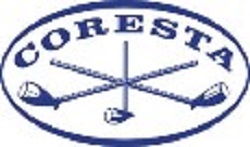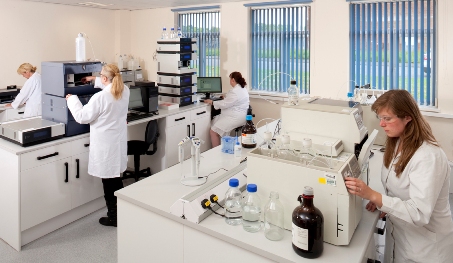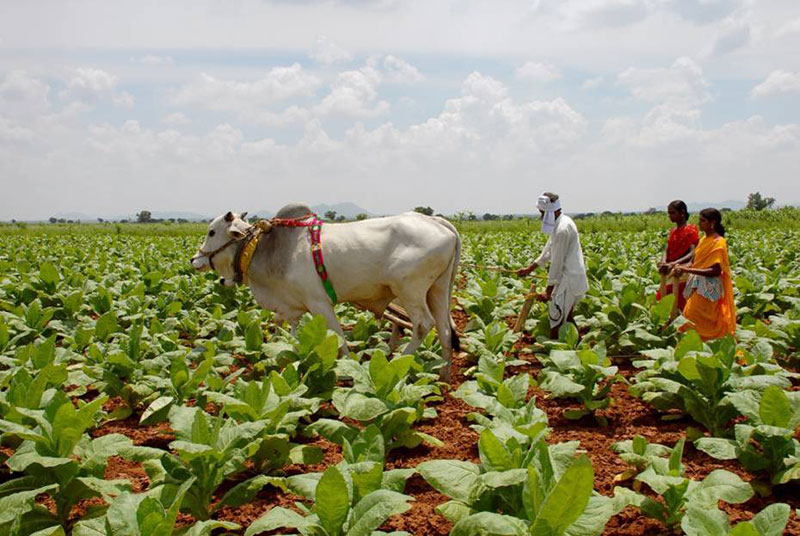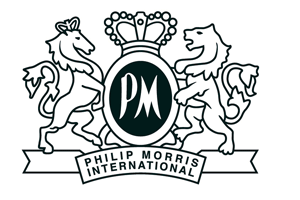Researchers have raised concerns about how the Brussels Declaration was developed and, in particular, the extensive involvement in it of tobacco- and alcohol-industry actors.
A Tobacco Control paper published on the British Medical Journal website describes in its introduction the Brussels Declaration as a statement of ethics and principles for science and society policymaking.
‘This arose from discussions at the prestigious World Science Forum, and was designed to attract attention,’ the paper says. ‘It was launched formally at the American Association for the Advancement of Science in February 2017, accompanied by an announcement in the journal Nature.
‘It raises questions about the integrity of scientists and calls on them to be less ‘aloof and perhaps less arrogant’. It calls on policymakers to be more accountable and, crucially, demands that voices of interest groups are heard in the policy debate.
‘At a time when facts are increasingly being questioned in some political fora, it has the potential to be very influential.
‘Its avowed goal, evidence-based policymaking, will be widely shared. Yet while it makes much of the need for research integrity and transparency, the Declaration fails to disclose its own origins and funding, or the interests of those involved.
‘Moreover, on closer inspection there are many curious aspects to the organisation of what purports to be a ‘bottom up’ initiative’.
The paper, whose lead author is Professor Jim McCambridge, of the Department of Health Sciences, at the UK’s University of York, concludes that while the Brussels Declaration argues for the need to protect science from distortion by vested interests, it appears to be a vehicle for advancing the vested interests of certain corporate sectors.
‘Calls for research integrity reflect core values of the research community,’ the conclusion said. ‘They should not be used as instruments to undermine science or to assist harmful industries.
‘It will be important to study carefully to what extent this initiative, and others like it, do form part of the global political strategies of tobacco and alcohol industry actors, and the extent to which these are successful in influencing public health and science policies, in order to counter any adverse effects on population health.’
Tag: International

A question of transparency

New president at TFWA
Alain Maingreaud (pictured) has been elected president of the Tax-Free World Association (TFWA) for one-year, according to a TFWA press note.
Maingreaud, who was elected at a TFWA Management Committee meeting on Friday, succeeds Erik Juul-Mortensen, who stepped down this month after a 19-year tenure as president.
Four candidates stood for election.
“I am delighted and honoured to be appointed president of TFWA, especially following an election with such strong candidates,” Maingreaud said following his election. “I am very grateful for the support I have received from the Management Committee and look forward to beginning work in earnest.
“I have, of course, a hard act to follow. Erik helped create TFWA and has worked tirelessly to nurture and promote the Association and indeed the wider industry – something which I embrace and would like to continue in the same spirit.”
Meanwhile, Juul-Mortensen said it had been a “genuine honor and a privilege to serve as TFWA president”. “I wish Alain every success in this very rewarding and sometimes challenging role, and I know that he will enjoy the full support of the Board and Management Committee.
“I am proud of what TFWA has achieved during my time with the Association, and of the contribution it has made to the development of the duty free and travel retail industry. I am greatly indebted to the members of the TFWA Board and Management Committee, past and present, for their support, counsel and encouragement, through good times and bad, and for the support and friendship of TFWA’s partners around the world, notably in Cannes and Singapore, where I have many memories to treasure.
“My wider thanks go to everyone in our industry for their support during my time as TFWA President. We have the good fortune to work in a global business that is constantly challenging, continually evolving, and always rewarding. I trust that TFWA will continue to play a positive role in helping all duty-free and travel retail companies reach their full potential and encouraging all to work together to the benefit of the traveling consumer.”
HNB workshop for March
A report on its 2018 Congress is included in the latest newsletter from CORESTA (Co-operation Centre for Scientific Research Relative to Tobacco).
The 2018 Congress was hosted by the China National Tobacco Corporation and held in Kunming in October.
The report includes details about the CORESTA Congress presentations and workshops, and a brief outline of the networking events.
Special mention is made of the Heated Tobacco Products Open Discussion and the announcement that a workshop is due to be held on this topic in Paris, France, in March.
The report includes, too, an outline of the CORESTA Prize presentation and medal awards ceremony, the results of the Board elections during the General Assembly, and the names of the newly-elected Scientific Commission executives.
The newsletter includes mention of the Golden Leaf Award, which was presented to CORESTA at Tobacco Reporter’s GTNF 2018 for outstanding service to the industry.
And, as usual, the newsletter has a list of recently published CORESTA Technical Reports, Guides and New Projects launched, and revised CRMs.
It has an update on CORESTA external communications and the dates of upcoming CORESTA meetings.
Commission out of touch
The public health community needs to adopt a consistent science-based view of new generation tobacco products in order to inform regulators around the world and thereby shape a stable framework, according to a EURACTIV.com interview with Dr. James Murphy, the head of Reduced Risk Substantiation at British American Tobacco.
Speaking to EURACTIV’s Sarantis Michalopoulos on the side-lines of the E-Cigarette Summit organized by the Royal Society in London, the world’s oldest independent scientific academy, Murphy said these products had the potential to become a global business.
“We think that by 2030, new generation products will be 30 percent of our business and by 2050 they could reach 50 percent,” he said.
Murphy said there was a huge body of scientific evidence, from academic, regulatory and public health science suggesting that the use of electronic cigarettes was far less harmful than was traditional smoking.
But Michalopoulos pointed out that the World Health Organization and the European Commission were still sceptical when it came to electronic cigarettes.
Martin Seychell, deputy director-general for health and food safety at the European Commission, was said to have told EURACTIV recently, “We should promote the concept that people should not be addicted in the first place”. “In a few words, prevention of addiction,” Seychell said.
Scholarships on offer
Knowledge•Action•Change (KAC), the organization behind the Global Nicotine Forum (GNF) held annually in Poland, has launched its 2nd Global Scholarship program focused on tobacco harm reduction.
The program is said to be aimed at building research capacity in the field of tobacco harm reduction; developing and promoting the evidence base; raising awareness of research and its implications for public health policy; enabling consumers to make more informed personal health choices; and improving the implementation and understanding of tobacco harm reduction.
In a note posted on its website, KAC said that recent years had seen advances in the scientific understanding of products used for tobacco harm reduction, including laboratory-based and clinical studies of their effects and safety, behavioural studies of how and why they are used in different populations and contexts, epidemiological studies into patterns of use, and the relationship between the use of these products and changes in tobacco smoking. ‘There is an increasing understanding of the range of appropriate and effective evidence-based regulation and standards for harm reduction products, and of harm reduction strategies and policies,’ the note said.
‘However, on a global basis scientific capacity for research on tobacco harm reduction and related products is not evenly distributed, and there is considerable variation in the use of evidence to establish effective and appropriate public health policies.
‘In addition, despite there being strong evidence for the effectiveness of a tobacco harm reduction approach, public understanding of the evidence base and its implications for both policy and personal health choices is limited.
‘This scholarship program aims to redress this imbalance. We expect proposals to be modest but achievable: they will be assessed for their potential significance in advancing the field.’
KAC said it wanted people to learn from GFN and to have the opportunity to implement this learning in their home countries.
‘There will be 20 scholarships for the year, with funds available to support agreed projects up to the value of $10,000.
‘The scholarships are a K•A•C initiative funded by a grant from the Foundation for a Smoke-Free World (FSFW).
‘The programme was independently designed by and is run by K•A•C.
‘Some projects may be included in future versions of the KAC publication The Global State of Tobacco Harm Reduction.’
The 2018 report, No Fire, No Smoke: The Global State of Tobacco Harm Reduction, is due to be launched in the UK at the House of Commons on December 18.
Expanding vapor
The UK Vaping Industry Association (UKVIA) said on Friday that it was expanding its membership after another successful year representing the industry.
In a press note, the UKVIA, which has been in operation for three years, said it was being joined by UK-based ECig-Direct and Oxford Vapours, and its first overseas-based members, SMOK, Innokin and FlavorIQ.
Founded in 2008, ECig-Direct is a UK supplier of vaping devices and e-liquids, while Oxford Vapours offers e-liquids, vaping devices and spares to customers in the UK and Scandinavia through its retail stores and online service.
SMOK and Innokin, which are the first China-based members to join the UKVIA, are expected to bring an extensive knowledge of the global vaping market to the Association.
Formed in 2010, SMOK is a leading brand of e-cigarette manufacturer Shenzhen IVPS Technology, which is said to sell to its 80 million customers in 50 countries its e-liquids and vaping devices.
Innokin is said to have designed and manufactured several internationally-recognised vaping products at its base in China. Its products are available in more than 5,000 Vape shops in the US, which are serviced from its customer headquarters in California.
FlavorIQ, which is said to be one of Europe’s leading e-liquid suppliers, is joining the UKVIA as an associate member. The German manufacturer started in 2014 as a branch of Hertz Flavours, a key producer of tobacco flavors. Through this partnership, FlavorIQ can call on 60 years of experience in flavor design and brings this expertise to the e-cigarette market.
“As the leading trade body for the UK vaping market, we are delighted to welcome some of the most renowned vaping brands as members to the Association,” a UKVIA spokesperson was quoted as saying.
“The UKVIA has been working on the public health and policy frontlines for the industry with fantastic progress.
“We now look forward to working with new national and international members to achieve a real impact in harm reduction for smokers in the UK and worldwide.”
ILO funding move welcomed
The International Labour Organization (ILO) no longer relies on funding from tobacco companies and affiliated organisations, for the time being, according to a note posted on the website of the Framework Convention Alliance (FCA).
‘In its Decision concerning contracts that had tied the ILO to an industry whose products kill more than seven million people each year, the Governing Body of the ILO adopted an integrated strategy to address decent work deficits in the tobacco sector,’ the note said.
‘The Governing Body has directed the ILO director general “to continue efforts to mobilize various sustainable sources of funding from the public and private sector with appropriate safeguards”.’
The FCA said it was confident the ILO would apply appropriate safeguards to its future fund-raising efforts to ensure that it no longer accepted funding from the tobacco industry.
‘The FCA also commends the ILO for its continued dedication to protecting the rights of workers within the tobacco sector and for the commitment it has shown in thoroughly addressing the issue of funding from tobacco companies.
‘The ILO’s contracts with the Eliminating Child Labor in Tobacco Growing (ECLT) Foundation and with Japan Tobacco International (JTI) expire in June and December 2018, respectively.
‘Rejecting funding from tobacco companies will allow the ILO to maintain its impartiality and enhance its capacity to address the issues that trap workers in systemic poverty including unfair contracts, collusion by companies over leaf prices, and inflation of the costs of farm inputs.
‘Other UN agencies should take note. The ILO has set an important precedent by taking the issue of tobacco industry funding seriously and addressing it institutionally. It has positioned itself to go further in addressing the root causes of systemic poverty in the tobacco sector, free from the undue influence of tobacco companies, consistent with Article 5.3 of the World Health Organization’s Framework Convention on Tobacco Control (WHO FCTC) and the Model Policy for agencies of the United Nations system on preventing tobacco industry interference.
‘The Governing Body has also directed the ILO director general to organise a tripartite meeting as a matter of urgency, to further develop and implement the integrated strategy. This upcoming tripartite meeting presents an opportunity to expand protections for workers within the tobacco sector and completely shut the door on any undue tobacco industry influence.’
PMI to webcast presentation
Philip Morris International is due to host at www.pmi.com/2018morganstanley a live audio webcast of a presentation and question-and-answer session by CFO Martin King at the Morgan Stanley Global Consumer and Retail Conference, starting about 09.20 Eastern Time on November 13.
The webcast, which will be in listen-only mode, will provide live audio of the entire PMI session.
The webcast may be accessed also on iOS or Android devices by downloading PMI’s free Investor Relations Mobile Application at www.pmi.com/irapp.
An archived copy of the webcast will be available until 17.00 on December 12 at www.pmi.com/2018morganstanley.
Presentation slides will be available at the same site.
New BAT regional director
Luciano Comin, currently British American Tobacco’s regional head of marketing, Americas and Sub-Saharan Africa (AMSSA), has been appointed to succeed Kingsley Wheaton as regional director, AMSSA.
Comin is due to start his new role on January 1 as Wheaton takes up his new role as chief marketing officer.
During his 26-years at BAT, Comin has held many roles, including marketing director Venezuela, marketing director Mexico and GM Mexico. He was regional marketing manager for Western Europe before taking up his current role.
JT's cigarette volumes up
Japan Tobacco Inc.’s domestic cigarette sales volume during the three months to the end of September, at 23.8 billion, increased by 1.3 percent on that of July-September 2017, 23.5 billion.
In announcing its consolidated results today, JT said that despite increased demand ahead of a tax-led retail price revision, cigarette industry volume had decreased 1.1 percent during the quarter, impacted by the expansion of the reduced-risk product (RRP) category and the underlying ‘natural decline trend’.
But JT’s cigarette sales volume had increased 1.3 percent led by a solid performance by the MEVIUS brand and the extra demand ahead of the price revision, estimated by JT as equivalent to about 0.4 of a month’s sales.
JT’s cigarette market share during the third quarter increased by 1.5 percentage points to 62.5 percent from that of the third quarter of the previous year, and increased by 0.9 of a percentage point on that of the second quarter of this year. JT said that it had achieved cigarette market share gains for three consecutive quarters.
Core revenue during the third quarter, at ¥172.2 billion, was increased by 15.8 percent on that of the third quarter of 2017, ¥148.7 billion. At the same time, adjusted operating profit increased by 19.5 percent to ¥69.3 billion.
Meanwhile, Japan Tobacco International’s total shipment volume during the three months to the end of September, at 114.5 billion, was increased by 9.3 percent on that of the July-September 2017, 104.8 billion.
Within that total, GFBs (global flagship brands) shipment volume was increased by 2.1 percent to 70.6 billion, from 69.2 billion.
The shipment volume growth of 9.3 percent was said to have been driven by acquisitions in Ethiopia, Greece, Indonesia, the Philippines and Russia. ‘Excluding acquisitions and inventory adjustments, total shipment volume declined 1.1 percent,’ JT said. ‘Quarterly volume increases and market share gains in France, Germany, Iran, Poland, the UK, the USA and several emerging markets did not offset the impact of industry volume contraction, notably in Russia and Taiwan. GFB shipment volume increased 2.1 percent, driven by Winston (+ 4.8 percent) and Camel (+ 0.9 percent).
‘Core revenue and adjusted operating profit core revenue increased 9.0 percent driven by volume contribution from acquisitions and a strong price/mix. Adjusted operating profit grew 9.5 percent including investments to strengthen the business foundation in the markets where we made acquisitions.’
Including the results of its other businesses, JT’s July-September revenue increased by 9.7 percent to ¥600.5 billion, while its adjusted operating profit increased by 12.7 percent to ¥193.2 billion. Operating profit increased by 11.8 percent to ¥174.8 billion.
In announcing the three-month and nine-month results, JT group president and CEO, Masamichi Terabatake, said that the group’s solid performance in the third quarter was mainly driven by robust pricing gains in the international tobacco business, leading it to revise upwards its forecast for adjusted operating profit at constant foreign exchange for the full year.
“With strong momentum in our business, I am confident that the JT group is well positioned to achieve its mid- to long-term objectives, but we will continue to monitor the impact of currency movements and geopolitical risks,” he was quoted as saying.
“Our total market share increased in Japan, demonstrating the resilience of our business and the strength of our brands. As for reduced-risk products, establishing a low-temperature heating category is taking longer than expected. We are therefore increasing our efforts to communicate the differences and benefits of the product compared to a high-temperature heating category.
“In light of a changing regulatory environment and consumer trends, we are convinced that demand for the low-temperature heating products will grow further. Establishing this category remains our first priority to achieve a leading position, and as we expect the RRP market to be more competitive, we will invest for future growth.
“We will continue to provide a range of choices within our portfolio strategy, including conventional tobacco products as the platform of the group’s profitability and RRP as our future growth driver.”










